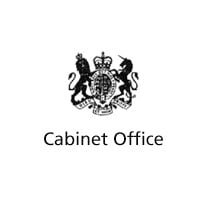All government bodies must comply with new open standards principles designed to make government IT more open, cheaper and better connected.
The Cabinet Office launched a consultation on open standards for government IT last February and the principles have now been published.
They include the creation of a ‘Standards Hub’ where documents relating to the development of standards will be published and people can feed back their ideas.
The report says the UK government has: “many small, separate platforms operating across disconnected departments and IT that is tied into monolithic contracts.”
“The publication of the open standards principles is a fundamental step towards achieving a level playing field for open source and proprietary software and breaking our IT into smaller, more manageable components.”
It also says public data will be published using open standards, and data from different departments about the same subject will be published in the same, standard formats and with the same definitions.
Central government and all departments must comply with the policy and the wider public sector – including the NHS – is being encouraged to adopt the principles.
The first of seven principles is that the government must place the needs of users at the heart of its standards choices.
“Citizens, businesses and delivery partners must be able to interact with the Government, exchanging appropriately formatted information/data using the software package of their choice,” the report says.
“They must not have costs imposed upon them, or be digitally excluded by the IT choices which the government makes.”
The second principle is regarding the creation of a “level playing field.”
“The government’s procurement choices have resulted in a lack of diversity in existing government IT contracts. As a purchaser of IT, this restricts our options and threatens value for money,” the report says.
In contrast, open standards for software interoperability, data and document formats provide an “agnostic” environment in which suppliers can compete.
“Frameworks for government IT procurements…must specify that open standards for software interoperability, data and document formats should be implemented …unless there is a clear business need why an open standard is inappropriate and an exemption has been agreed.”
The standards choices must support flexibility and change, which includes the opening up of Application Programme Interfaces.
“Making data and APIs available allows others to produce alternative, innovative views of government data and access to government services,” the report explains.
The ‘Standards Hub’ is where the government’s common IT infrastructure projects will publish operational challenges that standards may help to address.
“The Standards Hub process should request proposals and result in adopted open standards or open standards profiles for use in a specific government IT context,” the principles say.
Establishing sustainable costs is identified as important. “Value for money is achieved through avoidance of lock-in and providing a level playing field for suppliers to compete for government IT contracts, coupled with sustained competitive tension after the point of purchase."
“For government bodies that are identified as not adhering to the open standards principles, Cabinet Office may consider lowering the threshold for IT spend controls until alignment is demonstrated.”
The report says that decisions on standards selection must be well informed and standards must be selected, specified and implemented using fair and transparent processes. The open standards policy will be reviewed in 2014.

